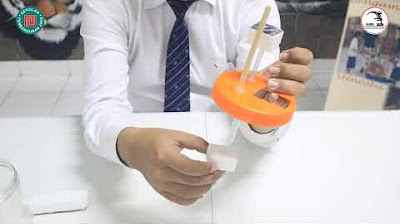Metode Pengukuran Tinggi Muka Air (SERI-5)
Summary
TLDRThis video is part of a conservation series discussing water level measurement, crucial for analyzing flow and flood assessments. It explains two methods: manual and automatic. The manual method involves reading a water gauge board three times a day, averaging the data for daily levels. The board must be properly positioned for accuracy. The automatic method uses an Automatic Water Level Recorder (AWLR) with sensors to capture detailed, precise data, including water level, pressure, and temperature. The video emphasizes the benefits of AWLR in providing more reliable and easier-to-read measurements.
Takeaways
- 🌊 Water level data is crucial for analyzing flow rates and flood-related studies.
- 🌧️ Rainfall greatly influences water level fluctuations.
- 📏 There are two methods for measuring water level: manual and automatic.
- 📝 Manual measurement involves reading a water level gauge, also known as a fiscal board, three times a day (7 AM, 12 PM, and 5 PM).
- 🔢 The three manual readings are averaged to produce daily average water level data.
- 🛠️ Installation requirements for fiscal boards include being on sturdy structures, not facing the water flow, and covering both the lowest and highest water levels.
- 📊 Automatic water level measurements can be done using an Automatic Water Level Recorder (AWLR).
- 📉 AWLR has high data resolution, providing more detailed and accurate water level information.
- 📡 AWLR records water level, water pressure, and temperature with its sensors.
- 🏗️ AWLR devices must be installed on solid structures such as bridges or other stable platforms.
Q & A
What is the importance of measuring water level height?
-Measuring water level height is crucial for analyzing the relationship between flow rate (discharge) and water level, as well as for studying flood patterns. It helps in understanding how factors like rainfall influence water levels.
What factors influence water level fluctuations?
-Rainfall is a key factor influencing water level fluctuations. When rainfall increases, it directly affects the rise in water levels.
What are the two methods of measuring water level height?
-The two methods of measuring water level height are manual and automatic measurement.
How is manual water level measurement conducted?
-Manual measurement is done using a staff gauge (papan duga), which is read three times a day at 7 AM, 12 PM, and 5 PM. The average of these readings gives the daily average water level.
What are the key requirements for placing a manual staff gauge?
-The staff gauge must not face the water current, should be installed on a sturdy structure such as a pillar or bridge, and must cover the range from the lowest to the highest water levels.
What is the automatic method for measuring water levels?
-The automatic method uses an Automatic Water Level Recorder (AWLR), which continuously records water level data, providing higher resolution and more detailed readings.
What are the advantages of using an Automatic Water Level Recorder (AWLR)?
-The AWLR provides data with a high resolution (up to millimeters), the data is more precise and detailed, and it is easier to read and analyze.
What types of data can an AWLR record?
-An AWLR can record water level, water pressure, and temperature.
Where should the AWLR be installed?
-The AWLR should be installed on a sturdy structure, such as a bridge or a permanent building, to ensure accurate and stable data recording.
What is the purpose of averaging the manual water level measurements?
-Averaging the manual water level measurements helps in producing a reliable daily average water level, which can be used for further analysis of water flow and flood prediction.
Outlines

This section is available to paid users only. Please upgrade to access this part.
Upgrade NowMindmap

This section is available to paid users only. Please upgrade to access this part.
Upgrade NowKeywords

This section is available to paid users only. Please upgrade to access this part.
Upgrade NowHighlights

This section is available to paid users only. Please upgrade to access this part.
Upgrade NowTranscripts

This section is available to paid users only. Please upgrade to access this part.
Upgrade Now5.0 / 5 (0 votes)





